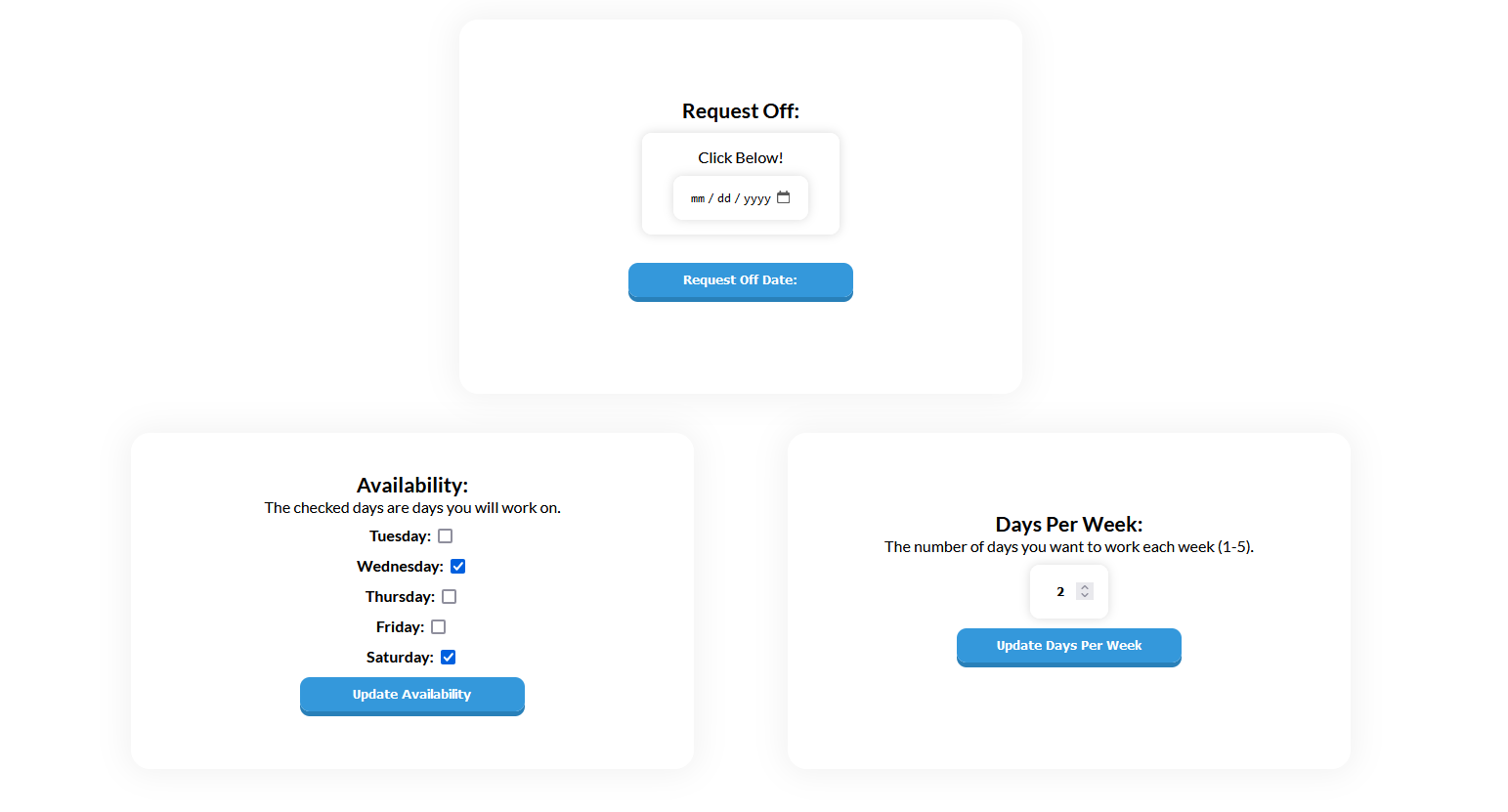10 West Employee Scheduling Application
Introduction
At the point of the creation of this application, I have been working at 10 West Restaurant and Bar, a local, family-owned restaurant, for over 5 years. The restaurant's way of creating the employee weekly schedule were outdated, using a basic excel spreadsheets, and manually filling in employees scheduled times. Then, this spreadsheet would be printed and displayed for the employees. A lot of employees would just quickly take a picture of the new schedule and distribute it amongst the rest of the employees. There were also problems and obstacles in creating schedules this way. For example, if people needed to schedule a day or week off, they had to manually write it into a book, at the establishment itself. Also, many employees had restrictions on days / times they could work and even the number of days they wanted to work on a weekly basis. Most of these problems can be solved by migrating to a online scheduling system. This is what I sought out to do. My plan was to have two separate applications. First, a web-application for employees to use in order to see their weekly schedules and configure any desired constraints. Second, a desktop application for the managers to use in order to create the schedules and also configure any employee constraints, if needed. To execute this, I used Google's Firebase as the backend to seemlessly interact the two applications together.
Web Application
The web application used primitive web development techniques, using HTML, CSS, and Vanilla JS. As mentioned previously, Firebase was used as the backend. This allowed for Google to handle user authentication and interaction with the database. Database rules were carefully crafted by me, in order to secure the entire application for employee use only.

test caption
Desktop Application
The desktop application was written in Java. To ease the development process of the GUI, JavaFX, Java's latest GUI library, was used. Just like before, Firebase was used for the backend. Since this application was used by managers of the establishment only, interactions with the database were way more lenient.